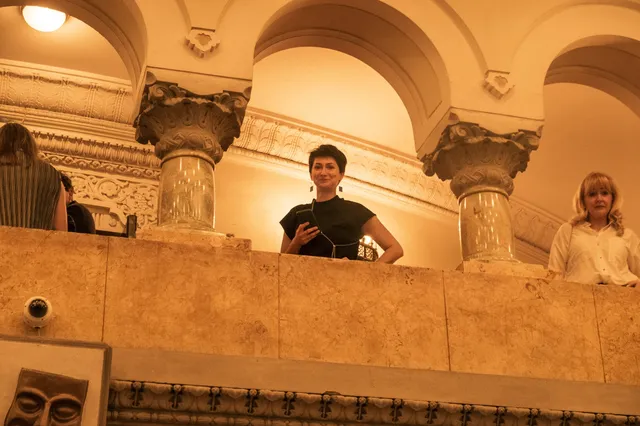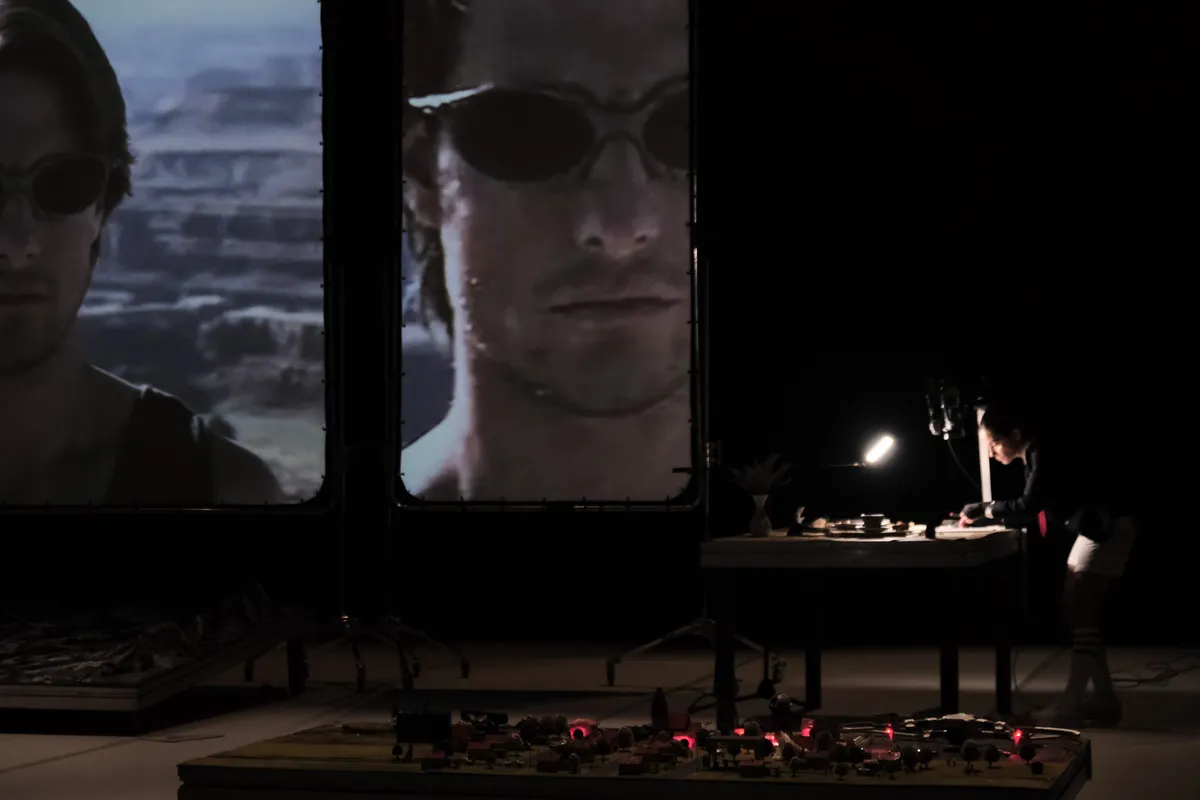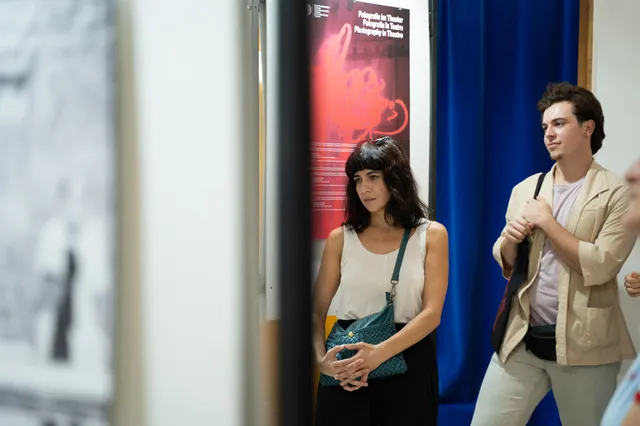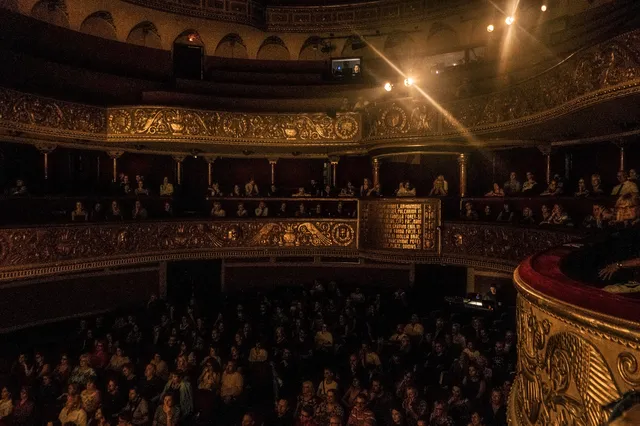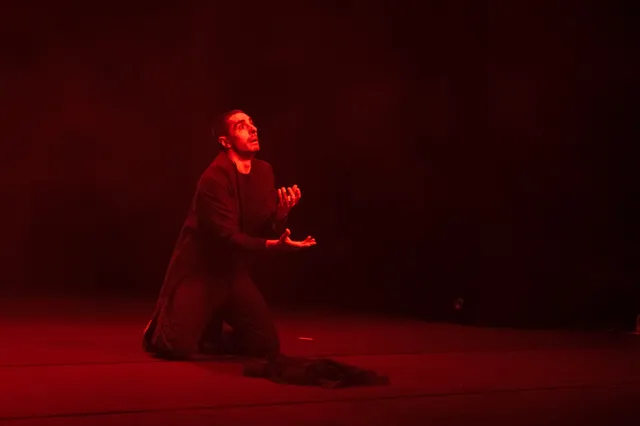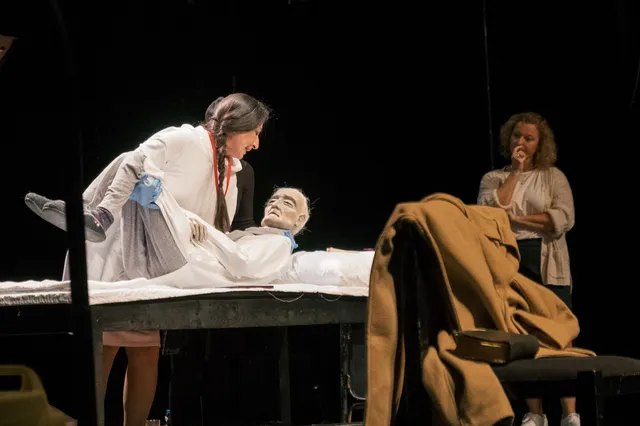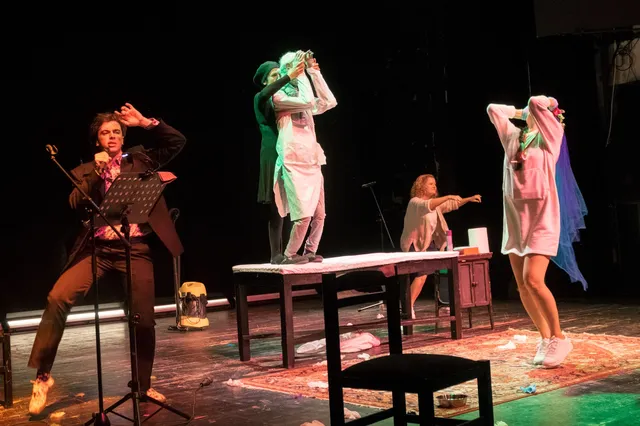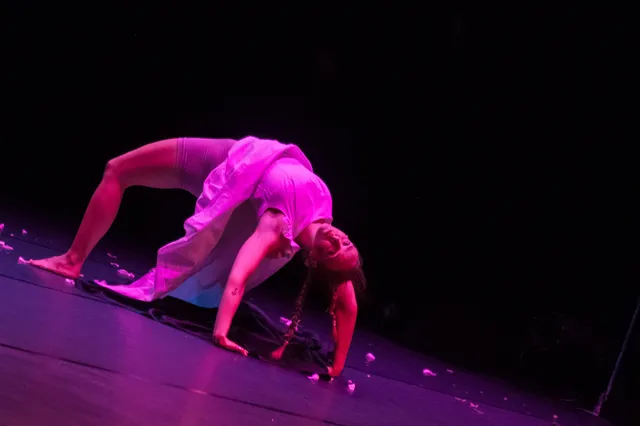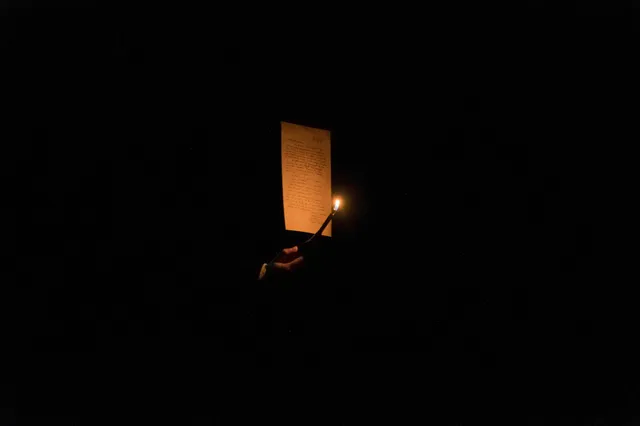Chronicle
by Clara Roman
“The
truth is not pure. The truth is complex, contradictory, and slippery... just
like reality” – these are the lines that open the show, or better, the
experience The Mountain. From the
very beginning, the spectator is urged to question
his own conceptions of truth and reality, when he is invited to accept the
convention that, throughout the performance, badminton becomes (or is?)
baseball, and the actress on the stage becomes (or is?) Putin. What makes a thing true? – this is the
question around which the message of the show can be built.
The
way the technology is used, specific to the productions of the company
Agrupación Señor Serrano, makes us feel somewhere in the future (especially
after the appearance of a drone on the stage). An AI image of Putin is
projected on the face of the actors who are talking, and their voice is
modified accordingly. The stage displays images that tell stories about George
Mallory and Everest, Orson Welles, and the alien invasion, characters played by
Tom Cruise. A state of deep anxiety is caused by the fact that we see and hear
Putin, the dictator who started a completely unjustified war. We automatically
think about the speed with which the real events pass on the stage.
The
reflection time is not long, because the pace of video editing (most of it done
by live transmission with the help of cameras and miniature models) is an alert
one that forces you to stay present in order to make sure you do not miss any
details. In contrast to technology, the stories we hear project us into the
past, and the theme gives us a sense of timelessness. We see truths (or not?)
generally valid in any age and historical reality (or not?). We know about
George Mallory's existence, about his death trying to climb Everest. We know
about Orson Welles and The War of the
Worlds – which made an entire country believe it was being invaded by
aliens, proving how easily manipulated the public is. We also know that there
is fake news. There is a moment when
the character Putin makes us believe (or trust) that nothing that is presented
to us is real, that the historical information used is false, modified, so
that, after the show, we have the impulse to check their veracity. The letters
Ruth addressed to her husband, George, are a key element that helps convey the
message: “What do you expect to find up there? You climb the mountain to get to
the top, but surely there must be something else”. This is how the metaphor of
the mountain is strengthened as a path of knowledge, of spiritual evolution, at
the end of which we have access to the absolute truth. In fact, this pushes us
to climb it every time – the hope of reaching the destination and finding out
what others do not know, of revealing to us the universal mysteries. The
process is more important than the result, we
are told. Maybe so, because we will never be able to climb the Everest anyway.
Metaphorically, of course. A reference to Plato's cave is most appropriate.
Just like the question: “What if someone managed to get out of the cave and
realized that the external reality is also an illusion?”. How would it be? How is it? What is it, and how do we know it is? Cogito ergo sum?
Many
lines and images remain with the viewer long after leaving the theatre. Is it
because “no matter how hard we try, we always reinforce the ideas we believe
in. Do we see the world as we are”?
---
“Ph[r]ases”-
Creative Formulas is a programme conceived by Diana Katharina and Daniela
Șilindean together with the team of the German State Theatre Timișoara,
dedicated to the theatre chronicle within the Eurothalia 2023 European Theatre
Festival, held between 20-30 September 2023, financed by the National Cultural
Program Timișoara - European Capital of Culture in 2023.
